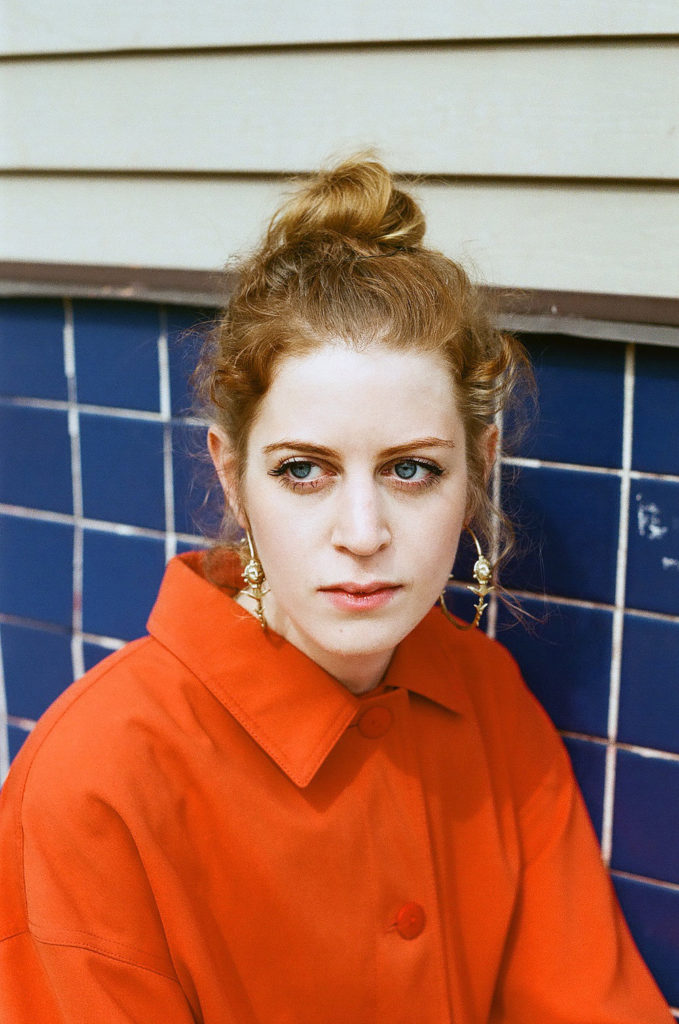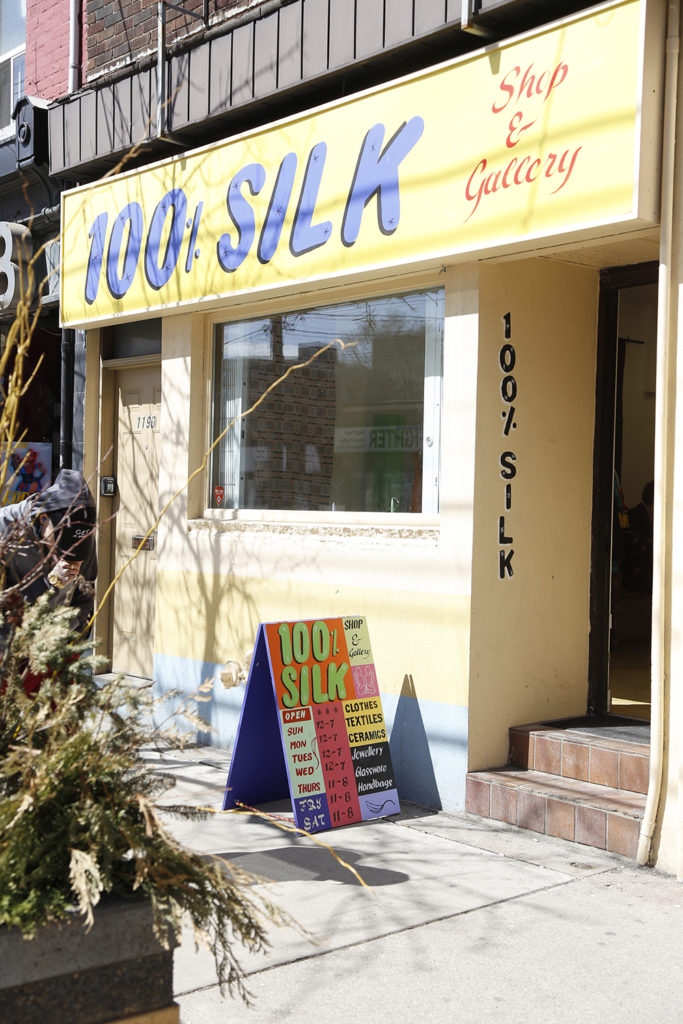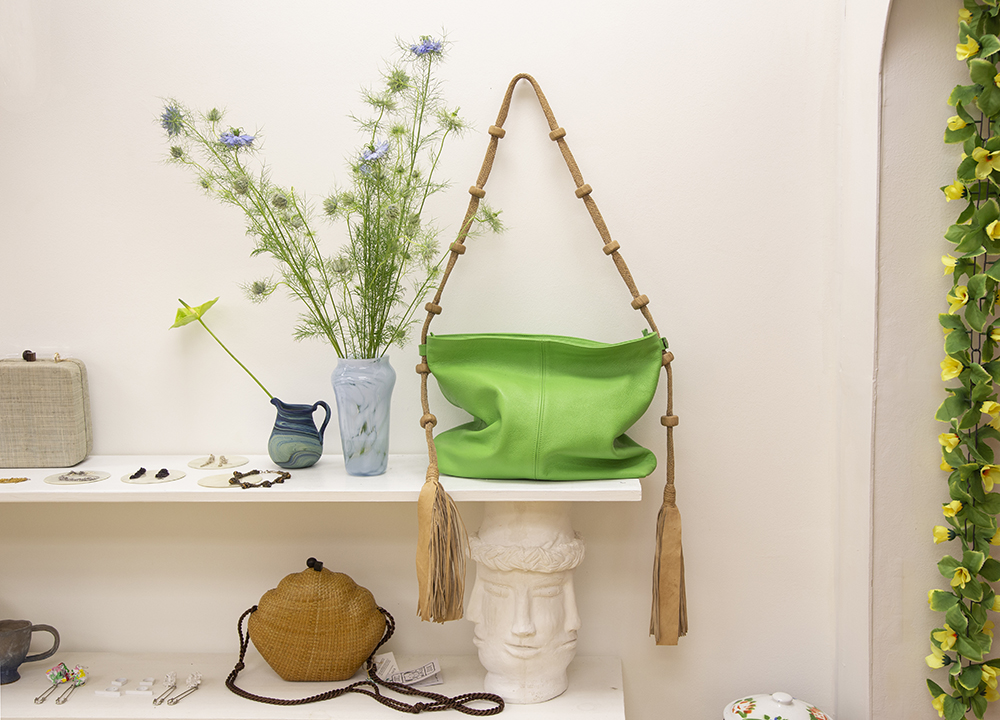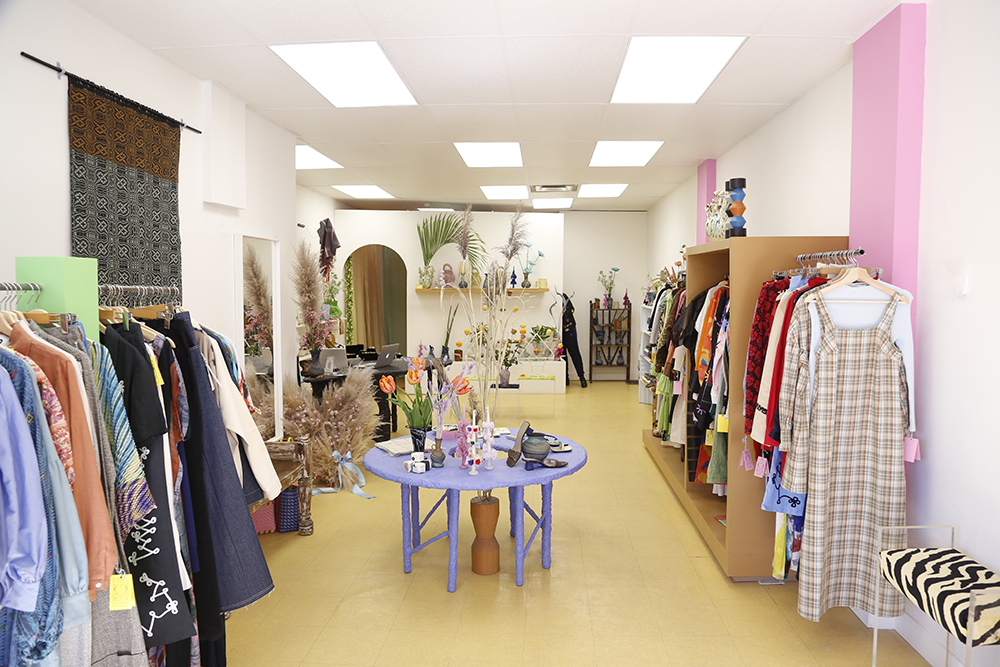100% Silk Shop is an eclectic clothing store that values quality over quantity, committing to housing brands that utilize slow, handmade processes and reimagine garments. By changing its inventory each season, 100% Silk successfully carries various sourced textiles and ceramics from around the world. We caught up with founder and creative director Lee Dekel on the story behind 100% Silk and what makes it the one-of-a-kind shopping experience that it is.

What is the vision and story behind 100% Silk?
“100% Silk is a multi-brand shop that showcases emerging brands and artisans from around the world who combine a distinctive vision with slow, handmade processes. It’s also a gallery with rotating exhibits—we just wrapped up a show of tapestries and garments made entirely of crocheted chain by Arielle de Pinto. I opened the shop in 2018 as a way to show my textile-focused clothing line, 100% SILK, among a curated group of artisans and designers that shared my ethos towards idiosyncratic beauty and craftsmanship. The goal was to start a new dialogue around the word ‘handmade’, one that celebrated both the aesthetics and the story behind each piece.”
What inspired you to enter such a niche market?
“I hadn’t really considered opening a brick and mortar space until I moved to Toronto to work on my line. I was trying to think of stores I wanted to sell the collection in and quickly realized the perfect home just didn’t exist—so that’s what 100% Silk became: a textile-focused world of its own. A space that feels personal, luxurious, and inclusive all at once. It quickly expanded to become part retail store, part textile gallery, and part experiential venue. At first I wasn’t sure if this hybrid was something that Toronto wanted but didn’t have, or didn’t want and didn’t have, so it started as a 6 month pop up. I enlisted the help of designers Rachelle Leblanc and Zach Besner to make custom furniture that reflected the bold and tactile nature of the pieces I was carrying. Luckily people came out in droves to support the shop and we’ve garnered a great online following in a short period of time. I hope the success of 100% Silk Shop inspires other people to open niche businesses in the city which we desperately need.”

What does quality mean to you? How do you ensure your standards are always met?
“Sustainability is a big focus of the shop and to me, quality and sustainability go hand in hand. If clothing is well made, it will look good when you wear it. If the fabric is good fabric, it will drape nicely on the body. If the person who made it was getting paid well, they’ll take the care necessary to make something that will last a long time. Quality gets overlooked when you become disconnected from the means of production, as tends to happen with large brands. The designers and artisans I carry in the shop work with such highly specialized processes that they have to oversee every step of the process. They support masters of cloth making, whose knowledge has been passed on for generations. For example, Tigra Tigra, one of the brands that I carry, uses an Indian silk mashru as a primary fabric. Hundreds of years ago, Islamic rulers wanted to work around a Muslim tenet that says you can’t wear silk on bare skin, so they developed this fabric that keeps cotton against the skin and all the silk just floats on top. On its own, the fabric has this elaborate luxuriousness to it but it’s also quite dense and wearable. I can’t think of anything more special or interesting to own.”

What do you envision for the future of 100% Silk?
“I’d love to continue to expand our arts programming and develop a lecture series about historical textiles from different parts of the world. I’m also thrilled to have time to focus on design again—I’m currently working on 100% SILK’s SS20 collection which uses appliquéd and embroidered textiles from Ghana and Uzbekistan, as well as our signature hand dyed silk velvets.”

What do you hope to see change in the fashion industry as a whole?
“I hope to see focus shift away from quantity. The amount of collections being produced every year to suit the needs of large department stores and online retailers is astonishing and excessive. It’s running so many talented designers into the ground. Luxury, to me, is a conversation between a designer’s vision, a maker’s hand, and the wearer, which is only truly possible on a small scale.”
Images courtesy of Alyson Hardwick.

